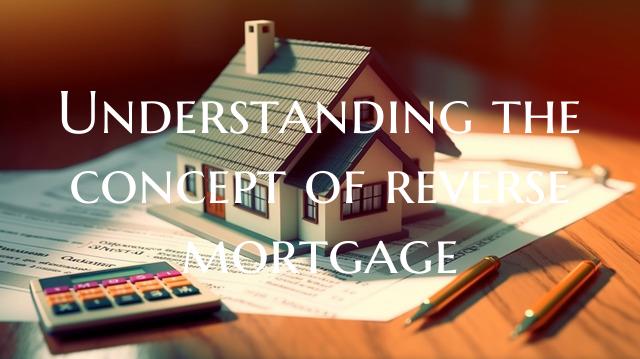Understanding the concept of reverse mortgage

A reverse mortgage is a financial product that allows homeowners who are aged 62 or older to convert a portion of their home equity into cash without having to sell their home or make monthly mortgage payments. This arrangement enables seniors to access the value of their home, providing them with a source of income during retirement years.
Here are some key points to help you understand the concept of reverse mortgage:
1. How it works: With a reverse mortgage, the lender makes payments to the homeowner based on a percentage of the home's appraised value. The homeowner retains ownership and continues to live in the home. The loan is repaid when the borrower moves out, sells the home, or passes away.
2. Eligibility requirements: To qualify for a reverse mortgage, homeowners must be at least 62 years old and own the home outright or have a low mortgage balance that can be paid off using the reverse mortgage funds. The home must also be the primary residence.
3. Types of reverse mortgages: There are three main types of reverse mortgages - single-purpose reverse mortgages, federally-insured reverse mortgages (Home Equity Conversion Mortgages or HECMs), and proprietary reverse mortgages. HECMs are the most common type and are insured by the Federal Housing Administration.
4. Benefits: Reverse mortgages can provide seniors with a source of income without having to sell their home. The funds can be used to cover living expenses, healthcare costs, home renovations, or other financial needs. Additionally, reverse mortgages have no monthly mortgage payments, and the loan is typically repaid from the sale of the home.
5. Considerations: While reverse mortgages can be a valuable financial tool for some seniors, there are important considerations to keep in mind. These may include fees and closing costs, interest rates, potential impact on inheritance, and the need to maintain the property and pay property taxes and insurance.
In conclusion, a reverse mortgage can be a useful option for seniors looking to access their home equity and increase their financial flexibility during retirement. However, it is essential to fully understand the terms and implications of a reverse mortgage before deciding if it is the right choice for your individual financial situation. Consulting with a financial advisor or housing counselor specializing in reverse mortgages can help you make an informed decision.
